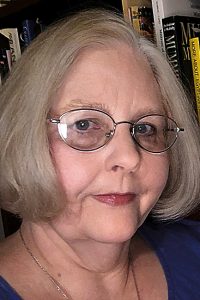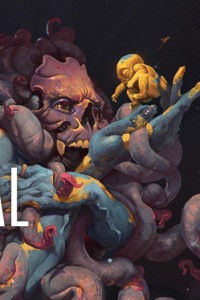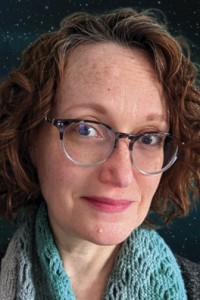Spotlight on: Sunyi Dean
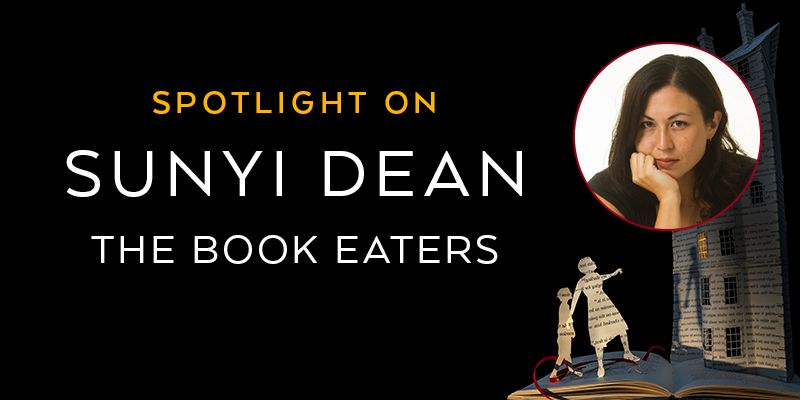
Tell us about your debut novel, The Book Eaters — the world where it takes place, and the characters who live in that world.
The Book Eaters is set in an alternate 2000s Britain, where book-consuming creatures live in gothic manors at the fringes of modern human society. The main character is a single mother on the run from her book eater family, with her mind-eating child in tow, and the story shifts between past and present to spin Devon’s story. Her predicament is complex; her relationships and motivations triply so.
Will you return to the world of this book in future work, or is it a standalone?
For now, The Book Eaters is a standalone. I think some readers would have preferred more worldbuilding explanations, but I was leery of getting drawn too deeply into that side of the narrative, because I think it distracts from the emotional arcs. Any sequels run the risk of stepping into that same trap.
In future, though, I would love to wrap up some of the hanging plot points with Devon’s family through another semi-standalone novel set in the same world, with a new POV character who is human. I think that would keep the focus off book eater history and origins.
You were born in the United States, raised in Hong Kong, and now live in Yorkshire England, where the novel is set. How have those different landscapes influenced your work?
Britain is the land I fell in love with, long before ever living here. Every book I write (so far I have written three, with a fourth one in the works) is heavily grounded in specific locations, and I enjoy drawing on the different places I’ve lived in to help bring them to life for readers and fellow travellers. I feel that different places are rich with their own history and atmosphere, which offer such wonderful support for a story. The next book will feature Hong Kong, and I hope the one after will feature Midwest America—both recast through the lens of fantasy.
The Book Eaters is your debut novel, and you first began publishing short fiction a few years ago. Can you describe your journey from aspiring writer to published author?
Writing is so often the occupation of the desperate or the dilettantes, sometimes both. Being honest, if I’d had any other viable career paths, I’d have chosen those roads instead. I’d always loved writing, but looking at the stats on authorhood was very disheartening. Hardly anyone seemed to finish books, let alone get them picked up and published, let alone write more of them. Trying to pursue that always felt like a pipedream.
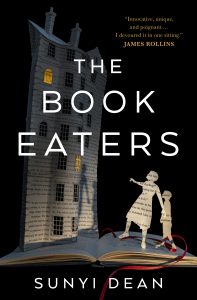
But by the time I hit 30, I was just (‘just’) stay at-home parent with SEN kids and a lot of immigration problems. Career wasn’t going to be a thing anymore. So, I started trying to write in 2016, as an act of last resort, unsure what else to do or try with my life.
I completed my first novel in a few frenzied months. It was mostly unreadable. I kept trying, kept rewriting it, while querying agents far too early. I lost track of how many full rewrites that book went through across the year. My writing did improve, but at some point, I began to recognise that the structure, premise, ideas of that manuscript were never going to meld. After about 180 agent and publisher rejections, I shelved that book and started another.
My second novel was written during 8 months of intense churn and burnout, amidst deteriorating personal circumstances and financial free-fall. It had heart, and fun concepts, and I managed to claw a single agent offer from it, for which I was very grateful. (Only 50 or so rejections for that one—big improvement!) However, that book then failed to sell to any of the publishers my poor agent tried to pitch.
The third novel I wrote is the one you now know as The Book Eaters, although it had a different title at the time. The Book Eaters took about 2 years to produce, because there was so much going on in my personal life, and also the experience of a book dying on submission had knocked me back a lot. I became embroiled in plot pitfalls, and everything moved at a snail’s pace.
Ironically, I began writing The Book Eaters as a married stay-at-home parent, but by the time I finished the book I had become—like Devon—a single mother with few resources. It was a difficult transition, but also weirdly useful. Writing Devon’s story gave me clarity for some hard decisions I needed to make in my own life, and likewise certain events in my own life gave me clarity in how to finish a novel I’d been stuck on for a while.
I do also write short fiction, and have done since my second novel, but I’m a slow with it: I produce perhaps 1 or 2 stories per year. I enjoy the experimental side of shorts and the challenge of its limitations. It is such a different skillset from novel writing, though, that I am not sure it would help anyone who is seeking to be a novelist. If you do pursue short fiction writing, I would do it just because you enjoy it.

You’ve written elsewhere about being an autistic author, and about neurodivergence and creativity. Are there any particular challenges in writing for a neurotypical audience — or is that even something you try to do?
Yes, very much so. One of the most common questions autistic writers wrestle with is how much (if at all) we need to adjust our stories and writing styles for a commercial audience who are largely neurotypical. It’s a very personal line to draw with no wrong answer, so I won’t speak for anyone else on the subject—but for me specifically, I try to have as broad a reach as possible.
This means changing how I write about emotion and conflict, and tightly scrutinising the kinds of emotional reactions that characters have or don’t have on a page. Interaction, dialogue, and character ‘logic leaps’ all need a lot of cross-examination, because actions or phrases which seem sensible to me may often seem “wrong” to a neurotypical person. It’s an awkward balance and I don’t always get it right, but the great thing about writing is that readers will usually give you some leeway for being a little off-beat.
I also tone down my tendency for weirdness a LOT. I realise that sounds strange, since a lot of people find The Book Eaters quite ‘weird’ as it is, but I truly did try to be restrained in writing The Book Eaters. If left to my own devices, I think I’d end up in Kurt Vonnegut territory (though without his finesse or literary touch).
What writers, inside and outside the genre, influenced you? Have you always been a reader of speculative fiction?
Spec fic is where I am most at home, but I also have enormous love for the crime/mystery genre, some litfic, ancient epics, and poetry (if that counts as a genre.) If I were to pick out a rapid-fire lineup of one author from each of those who left an early impact, it would probably be Gene Wolfe (spec fic), PD James (crime), Charlotte Brontë (litfic), Beowulf (esp the Maria Headley translation), and Mary Oliver (poetry).
My writing style is nothing like any of those greats, to be clear! I read fairly literary but write heavily commercial. I enjoy the ideas in weird or unusual literature, but I like imposing structure on my own creations.




